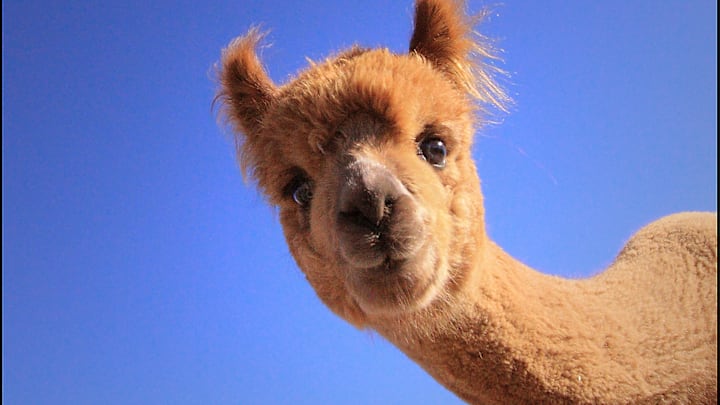Heading to the airport isn’t a pleasant experience for some passengers. Braving traffic, suffering through the TSA line, and finding the right gate is stressful enough—then there’s the anxiety around the flight itself. The process can be overwhelming for anyone, but a llama and an alpaca at the Portland International Airport are making it easier.
According to NPR, Beni the llama and Captain Jack the alpaca are part of the airport’s animal therapy program. They visit the Oregon travel hub every few weeks to bring smiles to the faces of harried travelers.
The woolly animals live on a farm called Mountain Peaks Therapy in Ridgefield, Washington. The ranch houses five llamas and six alpacas who take turns visiting senior communities, healthcare facilities, parties, and other places where their presence provides fun and comfort. The nonprofit farm has also welcomed visitors for private tours in the past.
Shannon Joy, co-owner of Mountain Peaks Therapy, told NPR that llamas and alpacas are typically “very herd oriented” and “feel safer amongst their peers.” She works with local breeders to find llamas and alpacas that are naturally curious about people, which makes them a good fit for therapy work. They must also go through training before becoming official therapy animals. This includes learning to tolerate petting and hugging from random people. Joy states, “It’s maybe one in 15 llamas that are going to have that level of confidence and bodily autonomy.” It’s even rarer for alpacas at one in 75.
Business Insider reports that animal therapy studies show “minor to moderately positive effects” on individuals with various mental illnesses. It can boost moods, lower anxiety, and provide a distraction in stressful times. Most research focuses on therapy dogs, however, and more studies need to be done on the effects of other species.
Read More About Mental Health:
